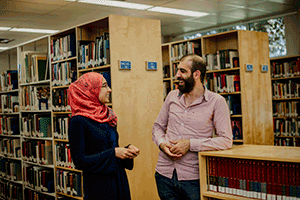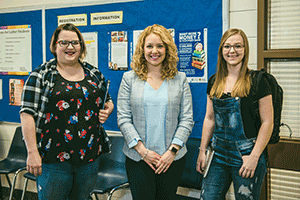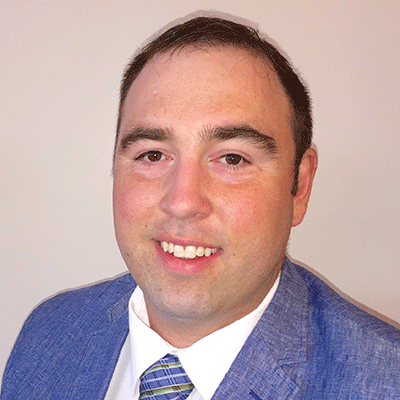Ready to learn more?
Get all the details straight to your inbox!

The Luther Library has over 24,000 items in its collection, 5,000 books checked out per year, and 7,000 students who come through its door per month.

To enrol as a Luther College student, simply fill out the University of Regina application form and select Luther as your campus of choice.

You can book a tour of Luther College, the U of R campus, and our student residence, The Student Village at Luther College, any time throughout the year. Contact our Recruitment Office at 1-306-206-2117.

Luther College offers Bundles programs that group together first-year students and classes to give you a great start and help ease the transition from high school to university.

Luther College students are eligible for nearly $100,000 in academic awards – in addition to scholarships and bursaries awarded by the U of R.

Free enrolment counselling support and invaluable one-on-one academic advising are available for all programs at Luther College.

The priority deadline for academic application is March 15. To book a personalized enrolment counselling appointment, contact our Recruitment Office at 1-306-206-2117.

Luther College is a great choice for high school to university transition. Enjoy all the benefits of a larger campus, without feeling lost in the crowd. Our community is full of caring mentors and peers to ensure a positive student experience.
Get all the details straight to your inbox!
Damon Cavan’s (U’03) dreams for a career path have been clear to him since he was a young boy, when he would sit on the floor in his parents' home disassembling and reassembling their computer.
Damon graduated from Luther College at the University of Regina with a Bachelor of Science in Computer Science in 2003. He is now a Manager of Development Competency for ISM Canada, an IT consultant and service provider owned by IBM. ISM provides IT services both on the hosting and the consulting side for clients across Canada by helping businesses define their issues and developing smart IT strategies to address these issues. His role is to manage the way ISM offers development services.
“My line of work and my career path, I pretty much chose it when I was really young,” says Damon. “I started in computers and computer programming at age seven.”
It all started simply as a way to entertain himself. He had become bored with the electronic games he had, so the best solution for him was to make the games he wanted to play. He created some “choose your own adventure” games and platform games similar to Mario Brothers for his family’s Tandy 1000.
“Living on a farm, I didn’t have access to a lot of stores or software,” says Damon. “When we bought the computer, it came with a basic book of programming language. I started sifting through that.” Since he was able to read music, he quickly learned that he could program to create songs on the computer. Family trips to the library allowed him to hone his craft and become more and more skilled as a computer programmer.
“My parents had to spend lots of time going back and forth to the library finding things because you don’t have the access to information you do now,” says Damon. “We were forty-five minutes away from Moose Jaw and would come in to the public library to pick up a stack of books. I was collecting anything [about computers], becoming more specific as I learned more.”
For each stage of his learning, his parents’ latest computer was always useful. “I wanted to learn about hardware. Here was this machine that they spent $5,000 on and I would tear it apart. Tear it apart and build it back,” explains Damon. “Every time I did it they swore that was the last time it was ever going to work.”
Damon’s university studies provided an opportunity to learn the theory surrounding computer science--the ‘why’ of things --and enabled him to better adapt to the many changes in his chosen field.
“This industry is always changing,” says Damon. “Having that degree allows you to go beyond the memorization of a language that will soon be changed.”
Today in his position with ISM, he looks forward to taking on higher management and consultancy roles. For Damon, the most exciting possibility of his line of work is to continue working directly with “Watson,” a cognitive learning environment that uses machine-learning analytics to discover insights from its data without human direction.
“In my opinion, that is what is going to move into Artificial Intelligence,” says Damon. When discussing the progress with Watson, developments in AI and the barriers still to be overcome, Damon says that the limits are in creative thinking. “Machine learning looks to patterns and to trends and does a very sophisticated analysis of the data. But outside of mathematical law, it does not think creatively yet.”
Damon sees his time at Luther as important in adding creative and critical thinking to his practical experience with computers and computer programming.
“It’s the difference between how and why [that you gain] at university,” says Damon. “That’s really what I learned [at university] and I still apply it today. The theory has not changed, just the ‘how’ has changed. That’s what lasts longer, especially in Computer Sciences.”
While many of his science classes were not offered through Luther, Luther’s liberal arts classes helped him to further hone the skill of thinking creatively and critically. “That is key, even in the sciences. The ability to look at a situation and think critically and be creative with it. Sciences tend not to teach you that; it’s theory and memorizing theory. The liberal arts allow you to learn to think.”
Name: Damon Cavan
Year of Graduation: 2003
Education: Bachelor of Science in Computer Science
Career History: Transitioned to his current position at ISM from a Business Analyst and Data Architect Roles. Has experience working with business intelligence, building inventory and space software, and service development.
Personal Notes: His advice to students today is to use their own time to do independent projects outside of their school work. Independent projects spark creativity, allow students to learn on their own, and develop self-motivation.